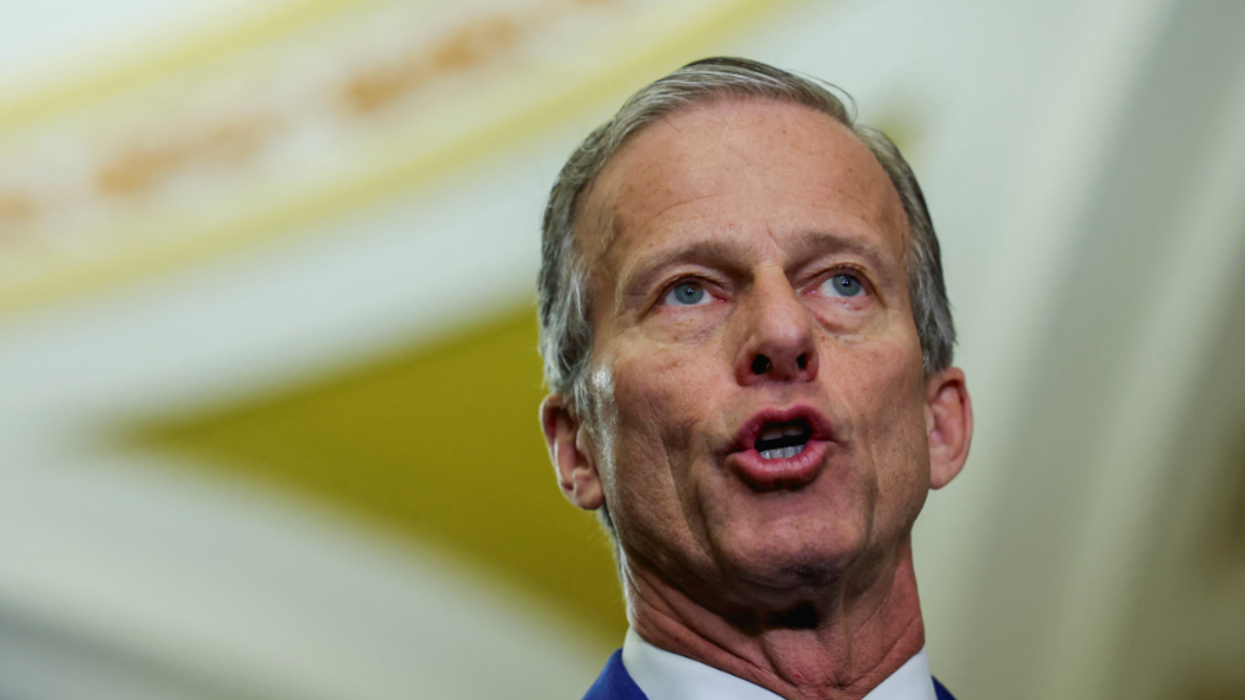Can We Stop Describing Trump's Tax Cuts As 'Populist'? They're Not
It is infuriating to see the media and politicians, including Democratic ones, refer to some of Trump’s campaign promises as “populist” tax cuts. Clearly, they were poll and focus-group tested and likely helped him win votes (the Republican team is more competent than the Democratic one), but they are not in any meaningful sense populist.
Let’s start with the most plausibly populist: ending taxes on tips. This will help some real working-class people, especially in Las Vegas where a reasonable number of people do both have substantial tip income and pay taxes. But it will provide little or no benefit to the bulk of people earning tips for the simple reason they don’t pay income taxes.
If that is hard to understand, then do a little homework. The average weekly wage in the hotel and restaurant industry is $485. That comes to just over $25,000 a year, if a person works a full year. If this person gets $5,000 a year in tips then Trump saved them roughly $500. That’s not trivial, but probably not a big change in their living standards.
But working a full year is a very big “if.” Many people, especially in low-paying jobs, do not work a full-year. Health, family, or school may mean that they only work part of the year. According to the Social Security Administration, 45.6 million workers, more than a quarter of the total, earned less than $20,000 in 2023, the most recent year where we have data.
Most of these low-paid workers would have zero income-tax liability. This means Trump’s “populist” tax cut did nothing for them. If we want to help low-paid tipped workers, the obvious measure would be to end the sub-minimum wage for tipped workers. This has been frozen at $2.13 an hour for three decades, although most states have higher ones or ended the sub-minimum wage altogether. That would be a genuinely populist measure, which would require employers to pay workers more rather than have taxpayers subsidize a small group of moderately paid workers.
The story is even worse with the no-tax on overtime provision. One of the main purposes of the overtime laws was to discourage employers from forcing workers to put in long hours. The 50 percent wage premium required by the law was intended to encourage employers to hire more workers rather than to force workers to put in 45 or 50 hours a week, or more. (Remember, overtime is almost always mandatory, unless a union contract gives workers the option to refuse it.)
Eliminating taxes on overtime effectively has taxpayers subsidizing employers who force workers to put in long hours, turning the intent of the law on its head. The populist move here is to simply raise the overtime premium. We can require employers to pay a 75 percent wage premium for forcing workers to put in more than 40 hours a week.
We can even get fancy and make the premium 100 percent if employers demand more than 45 hours. Or, if we want to really get populist, we can have overtime kick in after 38 hours, or even 35 hours, as some other countries have done. This would be the populist move on overtime.
The no-tax on Social Security provision is even less populist for the simple reason that low and moderate-income seniors already are not paying taxes on Social Security. A beneficiary with an income of less than $25,000 a year pays zero tax on their Social Security. This is close to 40 percent of beneficiaries. Even someone earning $35,000 would likely only be paying a few hundred dollars in taxes on their Social Security.
As it turned out, the bill passed by Congress raised the standard deduction by $6,000. This will help many upper-middle income retirees, saving them $1,500 a year on their taxes, but do little or nothing for low and moderate-income retirees. Again, it would not usually fit the populist label.
The populist move here would be to increase benefits along the lines proposed by Senators Bernie Sanders, Elizabeth Warren and others. They have proposed an increase in benefits of $200 a month. That would mean little to higher income retirees but would make a huge difference to the tens of millions of beneficiaries who rely on Social Security for much, or all, of their income. We could even phase out the increase so that it does not go to higher income retirees, thereby limiting the cost.
The last “populist” measure was making the interest on car loans tax deductible. This is probably the biggest joke since it only applies to new cars. (Actually, new cars built in the United States.) The average price of a new car is now $48,000. There are not many low and moderate-income people looking to buy a new car.
This proposal may have a modest impact on shifting demand to domestic cars from imports, but we can likely count on our fingers the number of additional autoworkers employed. If we want to boost auto production in the U.S., something like the system of subsidies and tax credits in the Inflation Reduction Act, would be the more effective route. Oh yeah, Trump’s bill eliminated these.
Anyhow, we can give Trump credit for an effective political stunt in putting forward these tax proposals, but it is a lie to call them “populist.” Trump and the Republicans might lie for a living, but the media are not obligated to go along.
Dean Baker is an economist, author, and co-founder of the Center for Economic Policy and Research. His writing has appeared in many major publications, including The Atlantic, The Washington Post, and The Financial Times. Please consider subscribing to his Substack Dean Baker.
Reprinted with permission from Substack.












